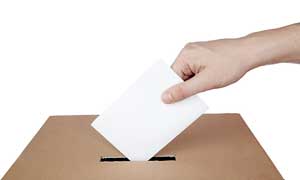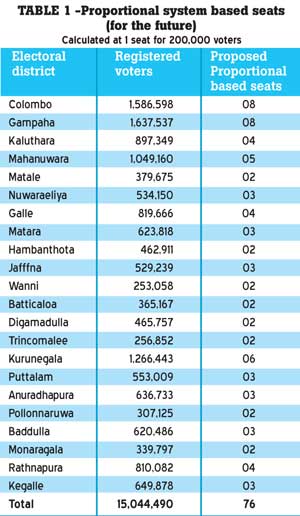Reply To:
Name - Reply Comment
Last Updated : 2024-04-19 21:46:00
.jpg)


Psephologist Wednesday, 25 March 2015 03:43 PM
Why do we have to re-invent the wheel? Why do we not adopt the New Zealand system of MMR - elected and nominated members, to suit us.

Add comment
Comments will be edited (grammar, spelling and slang) and authorized at the discretion of Daily Mirror online. The website also has the right not to publish selected comments.
Reply To:
Name - Reply Comment
On March 26, a couple arriving from Thailand was arrested with 88 live animal
According to villagers from Naula-Moragolla out of 105 families 80 can afford
Is the situation in Sri Lanka so grim that locals harbour hope that they coul
A recent post on social media revealed that three purple-faced langurs near t